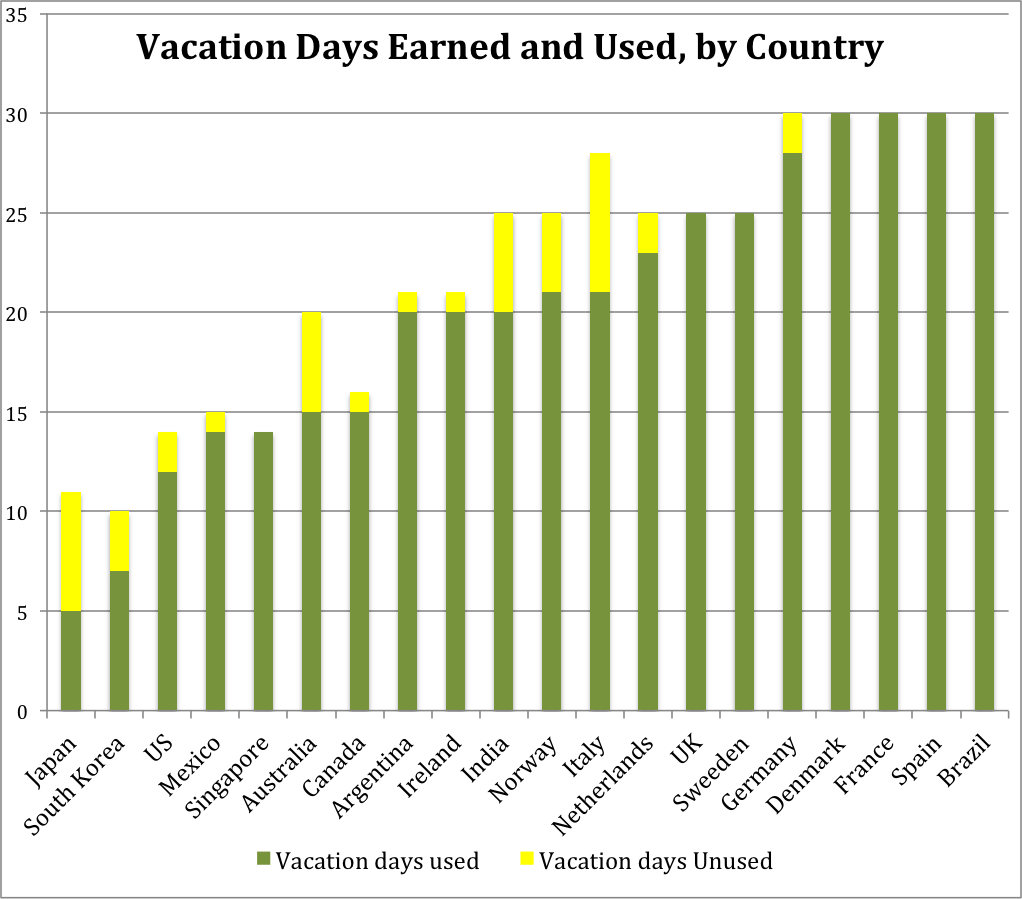You have /5 articles left.
Sign up for a free account or log in.
As September rapidly turns into October, it’s possible that your summer vacation might seem like a distant memory. Maybe it’s time to think about your next one.
We all know the benefits of time away from work. If you need a reminder of the benefits for your health, well-being and productivity, there are many articles out there, here’s just one from Psychology Today.
Unfortunately, actually taking a vacation is not always so simple. Does this vary by country? Expedia’s Vacation Deprivation Study reveals some interesting insight into this question. Based on a survey of over 7,000 people across 20 countries, it looks like the Japan, South Korea and the United States are the most vacation-starved populations. Japanese employees earn (11 days), and take the fewest days off (just 5 days), and the United States is not too far behind.
Overall, the number of vacation days earned ranged from 11 in Japan to 30 in several European countries. The number of vacation days taken ranged from 5 in Japan to all 30 in Brazil, Denmark, Spain and France. See the chart below for details.

Clearly there are many factors at play in deciding to go on a vacation, including but not limited to, finances, family obligations, work constraints, health concerns, etc. However, all the positive PR vacations have received in recent years mean that some trends may be on our side.
Consider this BusinessWeek article citing that companies like Evernote, Netflix, Zynga and other startups have all started offering unlimited paid vacation time for their employees. The article cites a curious effect this can have. “Often, employees greet the newfound freedom with suspicion. At Evernote, which did away with vacation limits in 2011, “the first thing we noticed when we did it was that some people started taking less vacation,” says chief executive Phil Libin. With no prescribed amount of time off, the company’s heads-down engineers assumed less leave would make them look better. So as an added incentive, Evernote began writing $1,000 checks for anyone taking a weeklong trip—provided they produced evidence of an airline ticket and reported back to colleagues on what they did. “Our employees are better after they have traveled,” Libin says. “They are more productive; they are more useful to the company.”
So this is more data to support how time away can make us all more productive when we get back. According to the survey, one of the reasons 20% of survey respondents don’t take more vacation is lack of planning, so perhaps now is the time to think about that winter or spring vacation.
For all our readers around the world, do these vacation statistics stack up to your own personal experience?





